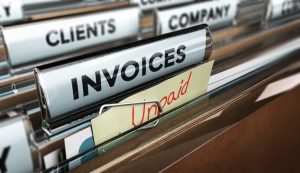- Maximizing After Tax Proceeds When Selling Your Business - June 7, 2024
- Understanding the Accredited Investor Rule 501 of Regulation D - February 27, 2024
- Which is Best – Business Broker, M&A Advisor, or an Investment Banker? - October 2, 2023
 A business debt schedule is a tool that helps businesses review, assess, and visualize debts. A debt schedule allows businesses to make strategic decisions about paying off debt, acquiring new debt, or creating long-term projections for investors and creditors. It also helps a business owner understand the monthly debt service requirements for his or her business.
A business debt schedule is a tool that helps businesses review, assess, and visualize debts. A debt schedule allows businesses to make strategic decisions about paying off debt, acquiring new debt, or creating long-term projections for investors and creditors. It also helps a business owner understand the monthly debt service requirements for his or her business.
Elements of A Business Debt Schedule
Your business debt schedule should include a list of all your business-related debt, including any loans, leases, contracts, notes payable, and any other miscellaneous payables. Keep in mind that regular short term expenses – like accounts payable and accrued liabilities are not generally included in a debt schedule. Accounts payable also does not normally include payroll, real estate taxes, and other types of taxes. Instead these are recorded on the company’s balance sheet as the expense is accrued.
Details of each debt should be included in the debt schedule. These details include the creditor or lender, the current balance and the original total debt amount, the interest rate, monthly payment, maturity date, due date, and any collateral pledged.
There are a number of websites that offer a business debt schedule template to help you get started.
Business Debt Schedule Uses
A business debt schedule offers a complete view of your business’ debts, making it an important tool that can be used in a variety of ways depending on your needs. The schedule may help you make on-time payments, maintain accurate bookkeeping and forecasting, decide whether you can take on more debt, provide key information to a new lender, and help you monitor your business’s overall financial health.
Not only is a debt schedule useful for you and your business, but lenders, creditors, and potential buyers will also use it to evaluate your company’s risk/reward profile.
Keep It Updated
A debt schedule for your business is only as useful as it is current. An updated business debt schedule could help you negotiate better interest rates, or show potential investors that your company is worthy of receiving new investments.
Maintaining an updated business debt schedule will also help you decide which debts should be paid off first, or help you make a convincing case to a lender in the event you decide to renegotiate interest rates by refinancing.
Alternatively, the debt schedule for your business is useful when considering a debt consolidation loan.














is the monthly rent for business place include debt schedule ?
Mike: Rent is not included on a debt schedule. Rent is an expense. Debt is where you have a contractual agreement to repay someone for money you borrowed. While you may owe rent into the future, it is not as the result of borrowing money.